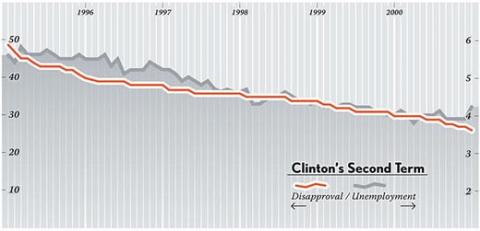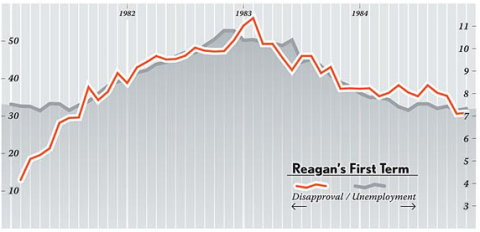It’s Faust the Liberal Agenda the Economy, Stupid
If there’s anything notable about David Brooks, it’s that he’s wedded to both literary analogies and sweeping, ideologically tinged judgments about the public.
Jul 31, 2020200.2K Shares2.6M Views
If there’s anything notable about David Brooks, it’s that he’s wedded to both literary analogies and sweeping, ideologically tinged judgments about the public. And in his most recent column, he doesn’t fail to deliver. Pivoting off of an extended analogy to Faust, Brooks argues that Democrats — eager to pursue their liberal agenda — failed to construct a viable liberal governing coalition, and they’re paying the price:
“„Surveys showed public opinion drifting rightward on issue after issue: gun control, abortion, global warming and the role of government. Far from leading Americans, Democrats were repelling them. Between 2008 and 2010 the share of voters who considered the Democrats too liberal surged from 39 percent to 49 percent, according to Gallup surveys.
“„Prospects for the 2010 election are grim. Election guru Charlie Cook suspects the G.O.P. will retake the House. N.P.R. polled votersin the 60 most competitive House districts currently held by Democrats. Democrats trail Republicans in those districts, on average, by 5 percentage points. Independent voters in the districts favor Republicans by an average of 18 percentage points. [...]
“„Instead of building faith in government, the events of 2009 and 2010 further undermined it. An absurdly low 6 percent of Americans acknowledge that the stimulus package created jobs, according to a New York Times/CBS survey.
Brooks is just one of manyconservative criticsof the Obama administration who ignore economic conditions and assert that public disapproval of the Democratic Party is due solely to public revulsion at the liberal policies. In his analysis, Brooks completely dismisses the economy as a factor in the public’s reaction against Democrats — only “Kool-Aid sippers on the left” put forth such arguments, he writes — but as any political scientist will tell you, the economy matters most when trying to explain public approval.
Tangible economic growth — things voters can see and understand — does wonders for majority approval, and the opposite is true of poor economic performance. Take Bill Clinton’s presidency, for instance. As John Judis detailedin The New Republic last year, an early-term recession pushed his disapproval ratings to 50 percent, but as the economy picked up in his second term, voters rewarded him with high approval:
Likewise, the recession that consumed Reagan’s early years led to a sharp increase in his disapproval rating (a point Salon’s Steve Kornacki madeby taking Brooks’ column, and replacing every mention of Obama and Democrats with Reagan and Republicans):
The same is true of Obama and the Democrats; their approval ratings have fallen at the same time that joblessness has grown. Of course, none of this is to say that the economy is the sole explanatory factor; sometimes, the public really is reacting against the majority ideology. But on the whole, you can’t understand public approval without looking at economic performance. Brooks’ outright refusal to consider the economy is why his column goes from being mildly interesting — Faust analogies are pretty uncommon in punditry — to completely off the rails.

Rhyley Carney
Reviewer
Latest Articles
Popular Articles

